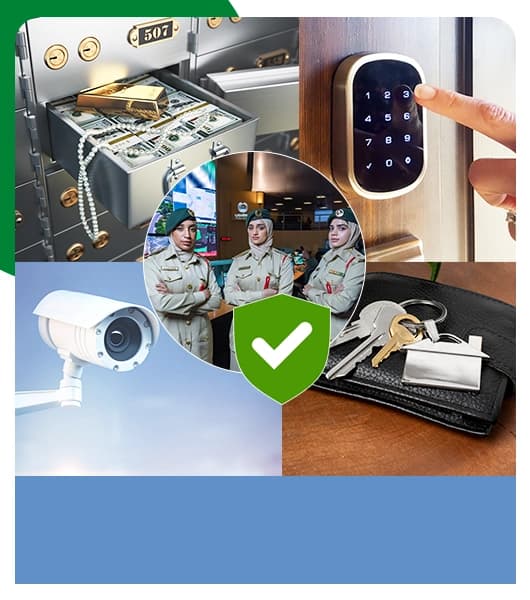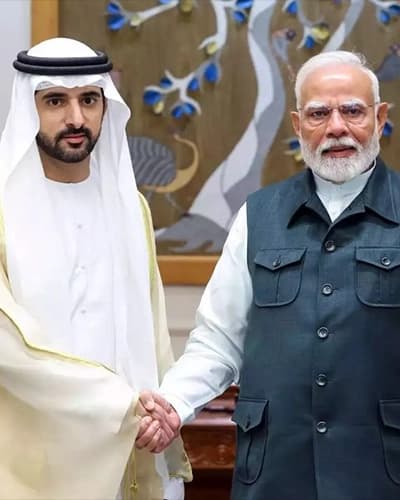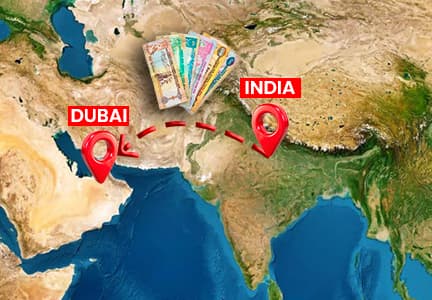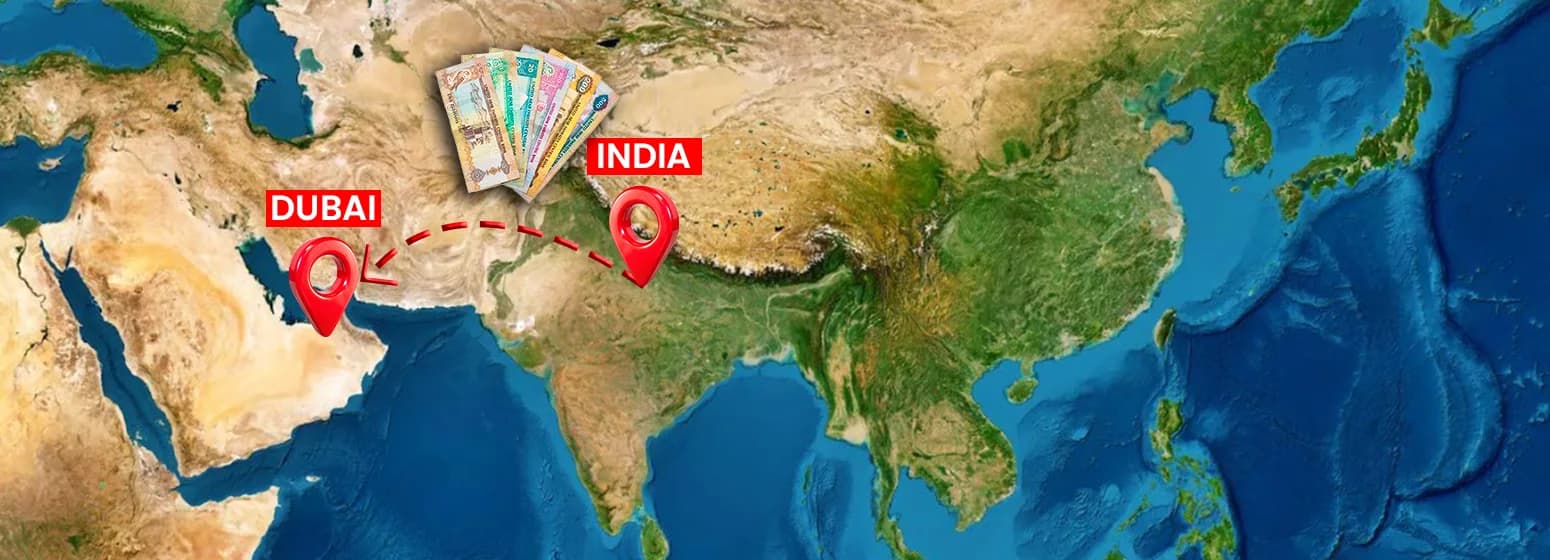Regulations You Must Know: FEMA & RBI
Before you transfer money from India to Dubai to buy a property, it is very important to understand the legal rules that apply. The Indian government has strict guidelines on how and when Indian citizens can send money abroad. These rules are mainly governed by two key authorities: FEMA and the RBI. Let’s break them down one by one in a simple way.
A. What is FEMA? (Foreign Exchange Management Act)
FEMA is a law created by the Government of India to regulate all foreign currency transactions. It is valid for both money coming into India or going out of India. When it comes to sending money abroad, FEMA allows Indian residents to do so, but only for certain approved purposes. One such approved reason is buying property abroad, such as real estate in Dubai.
Note: FEMA doesn’t work alone. It includes a specific rule for sending money abroad, which is known as the Liberalised Remittance Scheme, or LRS.
B. What is LRS? (Liberalised Remittance Scheme)
The Liberalised Remittance Scheme (LRS) is a framework that allows resident Indians to send a certain amount of money abroad every financial year for personal, investment, or educational purposes. Under LRS, an individual is allowed to send up to USD 250,000 per financial year (April-March) from India to any other country. It includes the UAE for some legal activities like:
- Buying residential or commercial property
- Investing in foreign stocks or bonds
- Paying for education or medical expenses
- Gifting money to relatives abroad
Note: So, if you want to buy a property in Dubai, you can send up to $250,000 (roughly ₹2 crore) in one financial year under this scheme.
Some Facts About LRS:
| Feature | Details |
|---|---|
| Annual Limit (per person) | USD 250,000 |
| Eligible Users | Resident individuals |
| Purpose Allowed | Property purchase, investment, education, etc. |
| Joint Remittance Option | Yes (e.g., husband + wife = $500,000) |
| Mode of Transfer | Bank transfer via NRE/NRO |
Example: A couple can jointly transfer $500,000 to Dubai to buy a property together.
C. What Are the RBI Guidelines?
The Reserve Bank of India (RBI) is the top authority that manages India’s financial system, including money transfers abroad. The RBI permits fund transfers under LRS, but only if you follow certain conditions and submit proper documents. Here’s what you need to do:
1. PAN (Permanent Account Number)
You must have a valid PAN card. This is needed for tracking your tax records and ensuring your transactions are legal.
2. KYC (Know Your Customer)
Before you can transfer money, your bank will ask you to complete KYC. This includes verifying your identity, address, and source of funds. Typically, you’ll need to provide documents like:
- Passport copy
- Aadhaar or utility bill for address proof
- Income proof or bank statement
3. Form A2
This is a standard form you’ll need to fill out and submit to your bank. It declares that you are sending money abroad for a permitted purpose (in this case, property purchase) and that you are complying with FEMA and RBI rules.
4. Transfer Through Authorized Channels
You cannot simply transfer money abroad using any method. The RBI allows fund transfers only through:
- Authorized Indian banks
- RBI-approved money changers or remittance services
Note: If you are trying to send money through unauthorised channels (like hawala or informal agents), it is illegal and could lead to serious penalties.
Table To Summarise:
| Requirement | Details |
|---|---|
| Governing Law | FEMA (Foreign Exchange Management Act) |
| Main Scheme | LRS (Liberalised Remittance Scheme) |
| Yearly Limit (per person) | USD 250,000 |
| Approved Purpose | Property purchase, education, investment, etc. |
| Documents Required | PAN, KYC, Form A2 |
| Transfer Channel | Authorized Indian banks or RBI-approved agents |
An Example to Make It Simple:
Let’s say Mr. Arjun, an Indian living in Mumbai, wants to invest in an apartment in Dubai. The property costs AED 1.5 million (around ₹3.4 crore).
In April 2025, Arjun used his NRE account to send $125,000 from India to Dubai through his authorized Indian bank. His wife, who is also eligible under LRS, transfers the remaining $125,000 from her account. Both submit Form A2, their PAN, and complete KYC. Within a few working days, the funds reach the developer’s escrow account in Dubai, and the investment is recorded legally.
Why It’s Important to Follow These Rules:
Following FEMA and RBI guidelines ensures that your fund transfer is:
- Legal and traceable
- Safe from tax scrutiny or penalties
- Recognized in Dubai during property registration or future resale
- Eligible for visa purposes, if applying for the Golden Visa
Note: Ignoring these rules or using shortcuts may lead to blocked transactions, legal action, or your money getting stuck.
In Short:
FEMA and RBI are there to protect your money and ensure the transfer is smooth and transparent. Once you understand the rules, transferring funds from India to Dubai becomes easy and straightforward. Always consult your bank, a certified financial advisor, or a property expert to guide you through the process step-by-step.
Step-by-Step: How to Transfer Funds from India to Dubai
Transferring money from India to Dubai to buy a property is a simple process if you follow the correct steps. Here's how it works:
1. Open an NRE or NRO Account
First, make sure you have an NRE (Non-Resident External) or NRO (Non-Resident Ordinary) bank account with an authorized Indian bank. This account will be used to send the money legally under the RBI’s rules.
2. Get the Property Booking Form or Sale Agreement
Once you’ve chosen a property in Dubai, the developer will give you a Property Booking Form or a Sale & Purchase Agreement. This document confirms the price and payment schedule for your property.
3. Submit All Required Documents to Your Bank
To start the fund transfer process, you need to give your Indian bank the following:
- PAN Card: Your Permanent Account Number (mandatory for tax purposes)
- KYC Documents: Proof of your identity and address (passport, utility bill, etc.)
- Form A2: A simple declaration form that states the reason for sending money abroad (in this case, buying property)
- Property Documents: the booking form or sale agreement from the Dubai developer
4. Bank Processes the Transfer
Your bank will now process the transaction in USD (US Dollars) and send the money to the developer’s escrow account in Dubai. This is a secure, government-approved account used for real estate payments.
5. Get a Payment Receipt
After the developer receives the payment, they will issue a payment receipt in your name. This proves that your money has been received and officially booked against the property.
Note: The entire process usually takes 3 to 7 working days, depending on your bank and the currency exchange process.
Best Bank Accounts for Sending Money: NRE vs NRO
If you’re an NRI planning to buy a property in Dubai, it’s important to know which bank account to use for transferring your money from India. In most cases, you’ll be using either an NRE or NRO account. Let’s understand the difference between them in simple terms.
A. NRE Account (Non-Resident External)
An NRE account is meant for managing your foreign income—like your salary, business earnings, or savings from outside India.
Key Features:
- The money you deposit in this account is fully repatriable, which means you can easily send it abroad without any limit or restriction.
- The interest earned is completely tax-free in India.
- You can hold the account in Indian Rupees (INR), but the money in it comes from outside India.
- This account is ideal if you are earning abroad and want to invest in Dubai real estate directly from your foreign savings.
Example:
Ravi lives in the UAE and earns in dirhams. He saves some of that money and deposits it in his NRE account in India. Later, when he decides to buy an apartment in Dubai, he uses this NRE account to transfer funds to the developer’s escrow account. Since the money was already in foreign currency, it gets sent easily and without any Indian tax.
B. NRO Account (Non-Resident Ordinary)
An NRO account is used to manage income you earn within India. It includes income such as rent from your Indian property, pension, dividends from Indian stocks, or any other local source.
Key Features:
- You can repatriate (send abroad) up to USD 1 million per financial year from this account, but you will need a chartered accountant’s (CA) certificate to confirm that all taxes are paid.
- The interest earned in this account is taxable in India.
- This account is useful if your Dubai property investment is coming from your Indian income or assets.
Example:
Neha owns a flat in Bengaluru that she rents out. She collects that rent in her NRO account. Now she wants to use this income to invest in a holiday home in Dubai. Since she’s using Indian income, she can repatriate up to $1 million from her NRO account to Dubai, after getting the necessary tax clearance from her CA.
Quick Comparison Table:
| Feature | NRE Account | NRO Account |
|---|---|---|
| Source of Funds | Earnings from outside India | Income earned in India |
| Repatriation Limit | No limit (fully repatriable) | Up to $1 million/year (with CA certificate) |
| Tax on Interest | No (tax-free in India) | Yes (taxable in India) |
| Ideal Use Case | Buying property using foreign savings | Using Indian income for property investment |
Some Extra Tips:
- If your investment funds are coming from your savings or job abroad, use your NRE account for a smoother, tax-free transfer.
- If you plan to use Indian earnings like rent or dividends, go with your NRO account. But, remember, you’ll need some paperwork before sending the money.
| Month | Exchange Rate (₹ per AED) | Change from Previous Period | Remarks |
|---|---|---|---|
| January 2024 | 22.35 | – | Stable start to the year |
| March 2024 | 22.41 | +0.27% | Minor fluctuation |
| May 2024 | 22.48 | +0.31% | INR slightly weakened |
| July 2024 | 22.53 | +0.22% | Continued upward trend |
| September 2024 | 22.61 | +0.35% | Market volatility increases |
| November 2024 | 22.66 | +0.22% | Rupee under mild pressure |
| January 2025 | 22.63 | -0.13% | INR gains slightly |
| March 2025 | 22.68 | +0.22% | Balanced forex activity |
| May 2025 | 22.70 | +0.09% | Stable conversion rate |
| July 2025 | 22.72 | +0.09% | INR remains relatively steady |
Some Extra Tips:
If you’re planning to send a big amount for your Dubai property, always plan your currency conversion in advance. Talk to your bank about locking in the rate, compare exchange rates across RBI-approved dealers, and keep an eye on forex movements.
What Happens in Dubai? UAE Side Process:
Once you’ve successfully transferred your money from India to Dubai for a property purchase, a few important steps take place on the UAE side to complete and secure your investment. Let’s break it down:
1. Funds Are Received in the Developer’s Escrow Account
In Dubai, real estate developers are legally required to maintain an escrow account for every off-plan project. This is a secure bank account monitored by the Dubai Land Department (DLD) to protect your money and ensure it’s used only for construction and project development.
Example:
You buy an apartment in an off-plan project like Azizi Riviera. The amount you pay (e.g., AED 200,000) will go into the escrow account assigned specifically for that project. It will not directly go to the developer. This ensures your money is used for that project only.
2. Buyer Receives a Payment Receipt
After the funds are credited to the escrow account, the developer will issue an official payment receipt. This confirms that they have received your payment in AED. This receipt is an important document and should be saved carefully. You’ll need it for further registrations and legal formalities.
3. Submit Documents for Oqood Registration (for Off-Plan Properties)
If you’ve bought an off-plan property, the next step is to register your ownership with the Dubai Land Department through something called an Oqood Certificate. Oqood is a provisional ownership record issued to buyers of under-construction properties. It protects your rights and shows that you are the official buyer of that unit.
Documents usually required for Oqood registration:
- Passport copy
- Payment receipt from the developer
- Sale and Purchase Agreement (SPA)
- Completed registration forms (provided by developer or DLD)
Example:
If you purchased a unit in Sobha Hartland that’s still under construction, the developer will help initiate your Oqood registration after your first or second payment.
4. Later, You May Need to Open a UAE Bank Account
As your property progresses toward handover or if you’re planning to lease it out. In that case you may need to open a UAE bank account. This will help you receive rental income, pay service charges, or handle future instalment payments easily.
Common documents needed:
- Passport copy
- UAE Visa (if you have one – it can be a tourist visa, residency visa, or Golden Visa)
- Proof of address in your home country (like a utility bill or bank statement)
- Sale and Purchase Agreement (SPA) signed with the developer
Example:
If you are nearing the handover of a ready-to-move-in apartment in Business Bay, your bank may ask for these documents to activate your local UAE bank account. This helps simplify payment of maintenance fees or collection of rent via direct deposit.
What Taxes or Fees Apply?
The table below shows the comparison of tax and remittance rules in India Vs UAE
| Country | Tax/Rule Category | Details |
|---|---|---|
| India | TCS on Remittances | 5% on remittances above ₹7 lakh/year (with PAN) |
| TCS Rate (without PAN or some types) | 20% without PAN or for certain investment types | |
| Foreign Asset Disclosure | Mandatory disclosure of foreign assets in Income Tax Return (ITR) | |
| UAE | Personal Income Tax | No personal income tax |
| Capital Gains Tax | No capital gains tax | |
| Remittance Tax | No remittance tax |
Observations from the table:
- In India, remittances above the specified annual threshold are subject to Tax Collected at Source (TCS), with higher rates for those without PAN or for specific investment transactions.
- Disclosure of foreign assets is mandatory in the Indian Income Tax Return (ITR) for residents.
- In the UAE, there are no personal income taxes, capital gains taxes, or remittance taxes for individuals, making it a tax-friendly destination for expatriates and investors.
Some Recent Policy Updates (2024–2025)
If you are planning to send money from India to buy property in Dubai, it’s important to be aware of a few recent rule changes. These updates affect how much tax you pay, which documents are needed, and how easily you can send money abroad.
1. TCS Changes (Tax Collected at Source)
From October 1, 2023, the Indian government made changes to TCS (Tax Collected at Source) under the Liberalised Remittance Scheme (LRS). If you send more than ₹7 lakh in a financial year, a 5% TCS will be applied to the amount above ₹7 lakh.
Example:
If you send ₹20 lakh in a year to buy property in Dubai:
- The first ₹7 lakh has no TCS
- On the remaining ₹13 lakh, 5% TCS is collected which becomes ₹65,000
2. PAN is Now Mandatory
Whether you're sending ₹1 lakh or ₹20 lakh abroad, it is now mandatory to provide your PAN card for all international fund transfers under LRS. This rule helps the Indian government track overseas investments and transactions properly.
Note: So before starting the transfer, make sure your PAN is linked with your bank account and all your KYC is up to date.
3. Golden Visa Eligibility Threshold Remains Unchanged
For those aiming to get the UAE Golden Visa, the property investment threshold remains AED 2 million (about ₹4.5 crore). If your property value crosses this limit, you may qualify for a 10-year residency visa in Dubai. This visa allows you and your family to:
- Live and work in the UAE
- Sponsor dependents
- Enjoy long-term stability in the country
4. Online LRS Transfers Now Available with Some Banks
To make things easier, some Indian banks have started offering online fund transfers under LRS directly through their mobile apps and internet banking platforms. This means you can now:
- Fill and submit Form A2 online
- Upload documents like PAN and KYC digitally
- Track the status of your remittance in real-time
Example:
- ICICI Bank, HDFC Bank, and Axis Bank have integrated this feature into their apps.
- You can now remit money for property investment without visiting a branch.
Final Thoughts
Buying a property in Dubai is a smart move for investors and homebuyers. The city offers strong returns, a global lifestyle, and long-term visa potential. But the process begins with legally transferring your money from India. With proper planning, documentation, and compliance, fund transfer can be seamless. Always consult with a professional advisor and ensure all steps are in line with both Indian and UAE laws.


How to Protect Your Home in UAE from Theft While You're on Vacation: 2025 Guide
For all of us, planning a vacation is exciting, but leaving your home unattended can...


Indian Real Estate Investors Now Find Dubai “A Profitable Hub”
Indian real estate investors considering Dubai one of the leading cities offering 7-8% rental annually...

